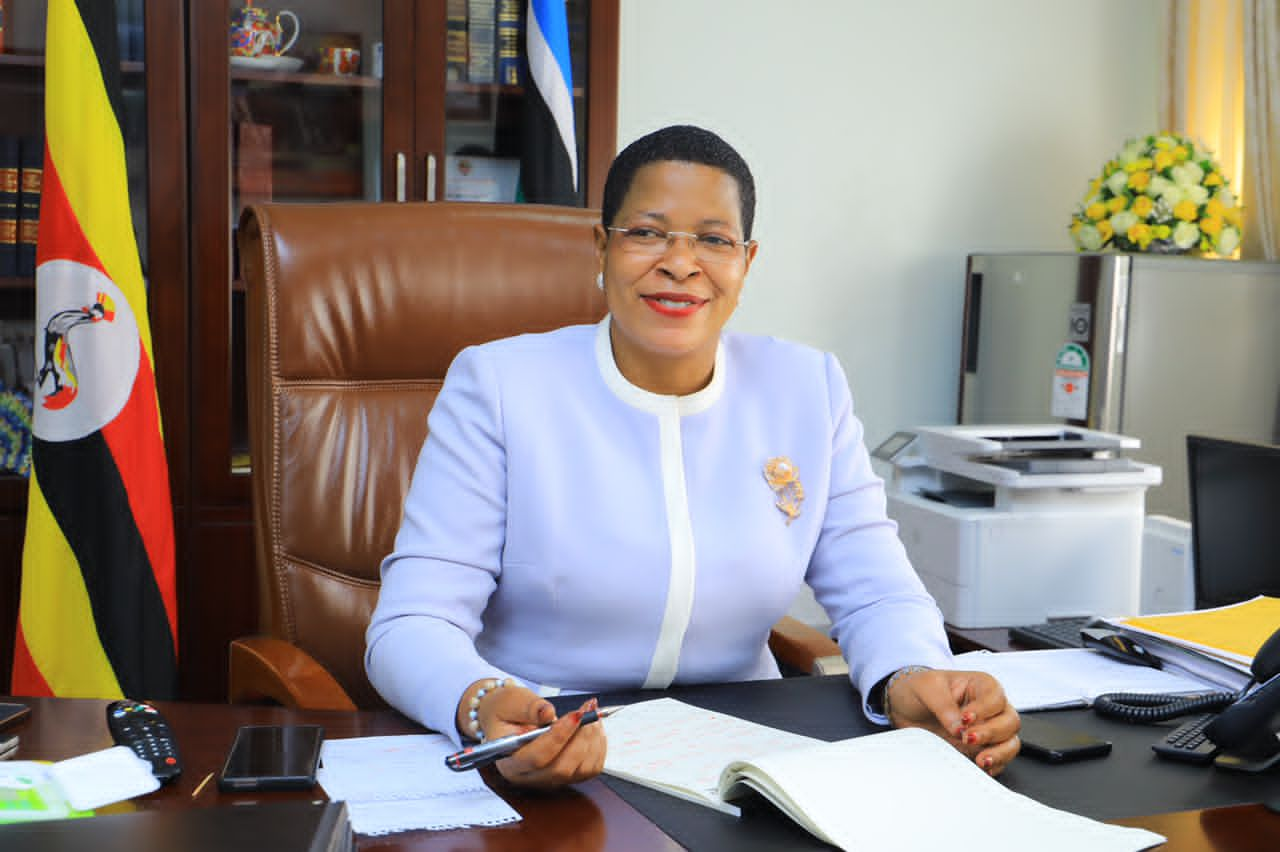Under pressure following corruption scandals and international sanctions, Speaker of Parliament Anita Among has resorted to new strategies to maintain her position. Her latest move involves holding parliamentary sessions outside Kampala, starting with the northern city of Gulu. This comes as the precincts of parliament remain heavily guarded following the July 23 #March2Parliament protests.
According to the Speaker’s office, this shift is part of a broader plan to rotate parliamentary sittings across different regions of Uganda—north, south, and east. The decision, long discussed but never implemented, is now being executed in what many see as a characteristic move by Speaker Among. However, this initiative has sparked controversy, with accusations of corruption and misuse of public funds.
The estimated cost of each session, reportedly Shs5 billion, has raised eyebrows, as it equals the annual budget of several government ministries and departments. Both Speaker Among and her deputies have denied these figures, yet they have not disclosed the actual costs, fueling further suspicions.
Deputy Speaker Thomas Tayebwa defended the decision, citing the parliamentary Rules of Procedure, which grant the Speaker the authority to determine where sessions are held. He noted that Parliament has previously convened at venues like Serena Hotel and Kololo Independence Grounds without controversy. However, he too did not provide details on the financial implications of the Gulu sitting.
Critics argue that the timing of this decision is suspicious, coming as Parliament faces mounting criticism over corruption, misuse of resources, and public outcry. The Leader of the Opposition in Parliament (LOP), Joel Ssenyonyi, has been particularly vocal, accusing the Speaker of extravagance and questioning the necessity of such a costly move. “What the people of northern, western, and eastern Uganda need are essentials like medicine in hospitals and better infrastructure, not expensive parliamentary sittings,” Ssenyonyi stated.
Ssenyonyi’s criticism has changed the dynamic between the Speaker and the LOP, leading to tensions. Since taking office, Ssenyonyi has been a relentless critic of Speaker Among, a stance that has seen him excluded from key Parliamentary Commission meetings. His objections to the Gulu sitting have been met with backlash, particularly from MPs representing northern Uganda, who argue that the session will highlight local issues and boost the region’s economy.
However, underlying concerns remain. MPs attending the Gulu sessions will receive out-of-office allowances, a point that has divided the House and heightened tensions over the decision. The move has been framed as a conflict between pro- and anti-corruption factions within Parliament.
Experts point out that this situation is indicative of a broader issue. Political corruption, as described by Prof. Inge Amundsen, a senior researcher at the Chr. Michelsen Institute, is more challenging to combat because it involves those in power who can manipulate the system to their advantage. He argues that the recent protests in Uganda and Kenya highlight the difficulties in tackling corruption at the highest levels of government.
Speaker Among’s tenure has been marred by allegations of corruption and lavish spending, leading to sanctions from both the UK and the US. These sanctions, imposed due to significant corruption charges, have severely restricted Among’s ability to represent Uganda internationally. The UK and US actions, unprecedented in their severity, have put the Ugandan government in a difficult position, as Among remains a key political figure despite her compromised status.
The pressure on Among has been compounded by internal opposition within Parliament. A censure motion targeting four parliamentary commissioners, accused of receiving Shs2 billion in irregular payments, is now under consideration. MPs like Aringa South’s Yorke Alioni have openly challenged the Speaker’s handling of corruption allegations, calling for transparency and accountability.
Despite the controversy, the Speaker remains within her constitutional rights to change the location of parliamentary sittings. Under Uganda’s parliamentary rules, the Speaker has significant discretion in determining the business and location of the House’s sessions, a power that few other legislative leaders possess.
As the Gulu sitting approaches, opposition within Parliament is growing. MPs like Mawogola South’s Gorreth Namugga have criticized the timing of the move, arguing that it is extravagant given the current economic challenges. Namugga and others believe that the funds allocated for the regional sitting could be better spent addressing pressing national issues, such as improving healthcare and infrastructure.
The decision to hold the session in Gulu has become a flashpoint in the ongoing debate over corruption and governance in Uganda, with the Speaker’s leadership and decisions under intense scrutiny.





